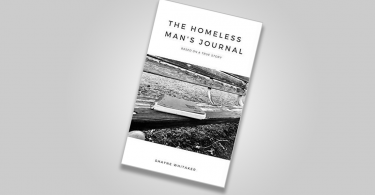The life of Graham Greene, contradictory and bohemian as it was, furnished him with the material for much of his fiction. His was a seedy world of double agents, exotic climes and a pervasive and peculiarly acute sense of shame and guilt. All of this is couched in the language and symbolism of the Roman Catholic Church, with which Greene had a protean and ambiguous relationship.
Intimations of the revolution
Greene had an uncanny gift for prescience, and was always in the right place at the right time. His novella Our Man in Havana, set in late ‘50s Cuba, records the premonitory pangs of the revolution, led by the Fidelista guerrillas, that was soon to cripple the Batista regime and propel Cuba into a global crisis. The logic of the Cold War made everything international, and Greene’s Havana teems with spies and informants from both the super and minor powers. The moral question was delivered in Manichean tones: Washington or Moscow, whose side are you on?
Our Man in Havana is one of a small genre of accomplished comic novels depicting hapless individuals being pushed and pulled by impersonal global forces (Johnny English, anyone?). Wormold, our hero, is a vacuum salesman, a profession that turns out to be much more useful in the game of international relations than one might expect. He is recruited (in a toilet) by the ever-careful and paranoid Hawthorne into the British Intelligence Services, and descends into a life where secrecy is the major and betrayal the minor chord.Wormold is distinctly disinterested by politics, and by the superpowers that seek to use Cuba as a proxy in a global war. Britain is eager to maintain its “special relationship” with the US, and plays its own part in the battle against “global communism” by placing spies in Cuba.
[video:https://youtu.be/NOcRnbGhQqc]The political is personal
For Wormold, the political is personal. He must provide for his daughter, Milly, and if that means fooling the spooks back in London into thinking that the Cubans are developing atomic weapons, then so be it. Milly is herself being wooed by Captain Segura, Chief of Police, a man with a reputation for sadism and torture who plays a decisive role in the political events of the novel. The personal and the political are always overlapping; as Christopher Hitchens used to say, you may be done with politics, but politics is never done with you. The political and historical sphere constantly infringes on Wormold’s life in ways he can’t predict – his long-time friend, Dr. Hasselbacher, turns out to be a Kaiser-nostalgist, often wearing his old service uniform in private.
The British Intelligence Services are deliciously satirised here as meddling and mediocre. Wormold, whose job it is to recruit double agents, is able to get away with inventing spies and telegramming their “information” back to London (one of these invented agents is murdered, giving Wormold a temporary glimpse of the shadowland between fact and fiction).
His official job as a vacuum salesman is also put to good use. He sends supposed blueprints of the Cuban nuclear weapons to the spies in London, whose paranoia is such that they fail to show these to nuclear experts, who may perhaps have noted their distinct similarities to vacuum cleaners. The passing of any acquired intelligence to the US is also apparently a definite no-go. Knowledge is power, and the crumbling scenery of the British Empire means that the blimps need all the power, however illusory, that they can get.
Documenting the Cold War
For much of his life, Greene struggled to fuse and reconcile his on-off loves: Catholicism and Communism. This, and his constant capacity to change his mind, put him at a curious angle to Cold War events. Giving his backing, in old age, to the Sandinistas in Nicaragua and to the whole set of “liberation theology” movements that sprang up in South America in the ‘70s was a chance for him to finally fuse his two passions. Despite this, Greene had a crucial novelistic trait: the worship of nuance. A minority of writers betray a huge state of tension between their gift of nuance and their huge capacity for conviction. This has been an understudied phenomenon among many first-rate writers; it is an unsettling fact that the comic novels of Evelyn Waugh would not be so cutting had he not been an insufferable snob and nostalgist for the Empire.
Greene famously divided his books into the categories of “serious literature” and “entertainments”, with Our Man in Havana being counted among the latter. Critics have turned this into an irony by consistently rating it as one of his best novels, and it retains its power as a comic and microcosmic examination of the intellectual terms and conditions of the latter half of the 20th century. “Time adds poetry to a battlefield,” says the narrator. The bloodless Cold War did not much lend itself to poetry, but Greene was one of the most poetic chroniclers of the branch of superpower logic that still infects much of our political discourse.
Have you read Our Man in Havana? Let us know in the comments below!









